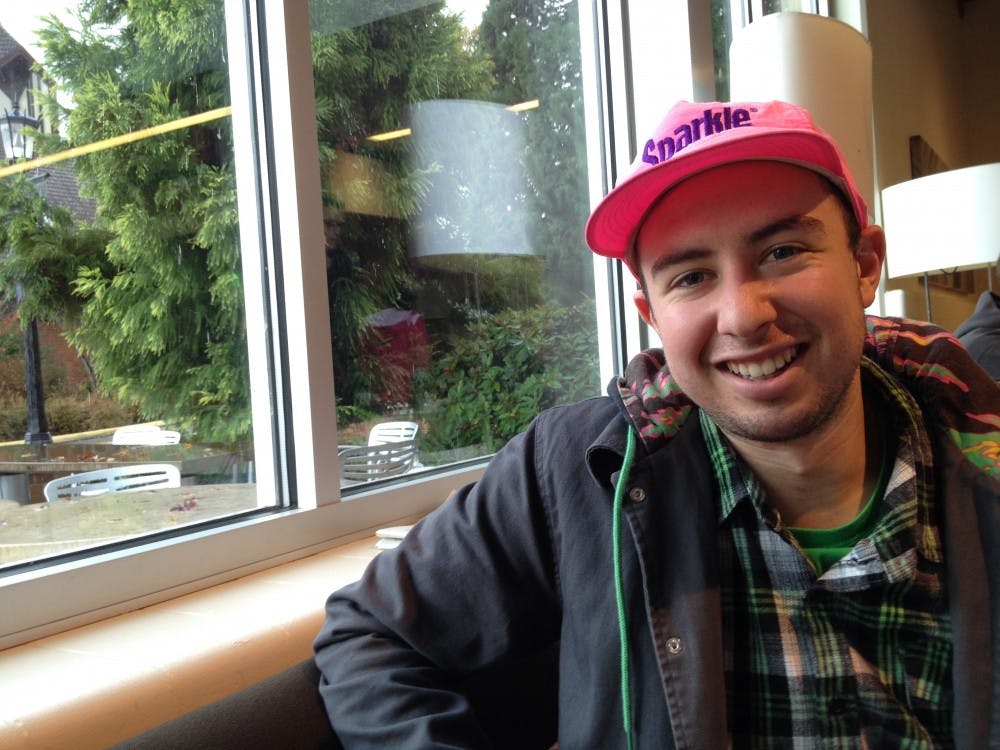By Erika Murphy |
Here’s a few numbers to throw out: 15 hours per week, 32 weeks in a year, 26 students. Multiply it all together, and the product, 12,480, represents the hours UP senior social work majors have committed to their year-long practicums. After interviewing at community agencies junior year, senior social work majors are now working in the placements of their choice to complete the practicum graduation requirement.
First semester is spent getting familiar with the system of each placement. By second semester, students work more independently, many managing their own caseloads.
Practicum Director Kevin Jones helps students get connected to one of over 100 community agencies in relationship with UP. Students begin in February of junior year so they are prepared to work as soon as senior year begins.
Senior Amanda Ewing is placed in the emergency department at Randall Children’s Hospital at Legacy Emanuel. The social workers serve in collaboration with a medical team. Every night brings different cases concerning children ages zero to 17. Ewing has witnessed psychological evaluations for kids with suicidal ideations, as well as provided resources like car seats for new parents.
“It’s really intense stuff, but every single day there’s a different, totally different case,” she said.
Ewing thrives on the energy. Never knowing who could walk through the door keeps her on her toes, she says.
Humor gets her through what may otherwise be difficult days. She jokes with co-workers that sometimes it seems as if a theme connects all the cases.
“For example, a few weeks ago, on Monday, most of the kids that came in were brought in by their grandparents,” she said. “So I was just like, ‘It’s bring your grandma to the hospital night!’”
Jordan Mattson, the only male of 26 social work seniors, has encountered everything from a baby born with an addiction to meth to a 16-year-old girl who attempted suicide in his placement at Child Protective Services, through the Department of Human Services in Gresham, Ore.
Mattson is interested in dispelling stereotypes about CPS.
“The whole stereotype of CPS workers (is that) all they do is take babies away,” he said. “(But they really try to) keep the kid in the family, whether it’s with the relative or with the same parents. And the last resort is to take the kid away and put them in foster care.”
Though Mattson considered working with the homeless population or in jails, CPS has been a good fit.
“(There are) definitely some eye-opening experiences,” Mattson said. “It’s interesting what some people will do to their children – or not do. So it’s tough.”
Students often find practicum placements from a list provided by Jones, but Ewing ended up at Legacy on a whim.
“I broke my ankle last year,” Ewing said. “And just being at Legacy for my surgery and everything, I was telling the nurses that I was studying social work and they were just talking about how great the social workers at the hospital were.”
Ewing is the first UP student to complete a practicum at Legacy. Doing so has paved the way for future students to follow.
“(My practicum has) opened the door for other students down the road,” Ewing said. “(My supervisor) has already asked me to keep my eye out for next year. She’s like, ‘If you could just clone yourself, that would be great!’”
The practicum has informed her post-graduation career decisions. She is considering earning a master’s degree in teaching or social work, or both, she says.
Since UP’s social work major is an accredited program and includes the practicum and theory classes that make up the first year of a social work master’s program, UP social work majors who are accepted into a master’s program for social work will have advanced standing.
The UP program also intentionally places seniors in a single agency for the entire year.
“Our students have an opportunity to really get well-oriented to the systems that they’re working in,” Jones said.
By the end of the year, many seniors are able to manage their own cases.
Ewing values the relationships she’s built and her hands-on experience has made Ewing more passionate about the field.
“It’s crazy; a lot of people don’t know what social work is,” Ewing said. “They think it’s just, like, child welfare, but it’s so much more than that.”
The placements among seniors this year include labor rights and mentoring children with cancer and environmental justice.
“Social work provides a wide range of opportunities,” Jones said. “That’s something that’s apparent when you look at all the placements.”
Jones has watched the major grow from 17 to 26 seniors in his three years at UP. He is not worried about job prospects for social work graduates.
“The job market is really good, which is great for our students, of course, but unfortunately that means that there is suffering and marginalization and oppression,” he said.
Mattson says he has found his calling.
“My mom is always like, ‘I don’t know why you do it. I don’t understand it,’” Mattson said. “I’m always like, ‘Someone has to do it,’ and if I’m okay with it, might as well be me.”








